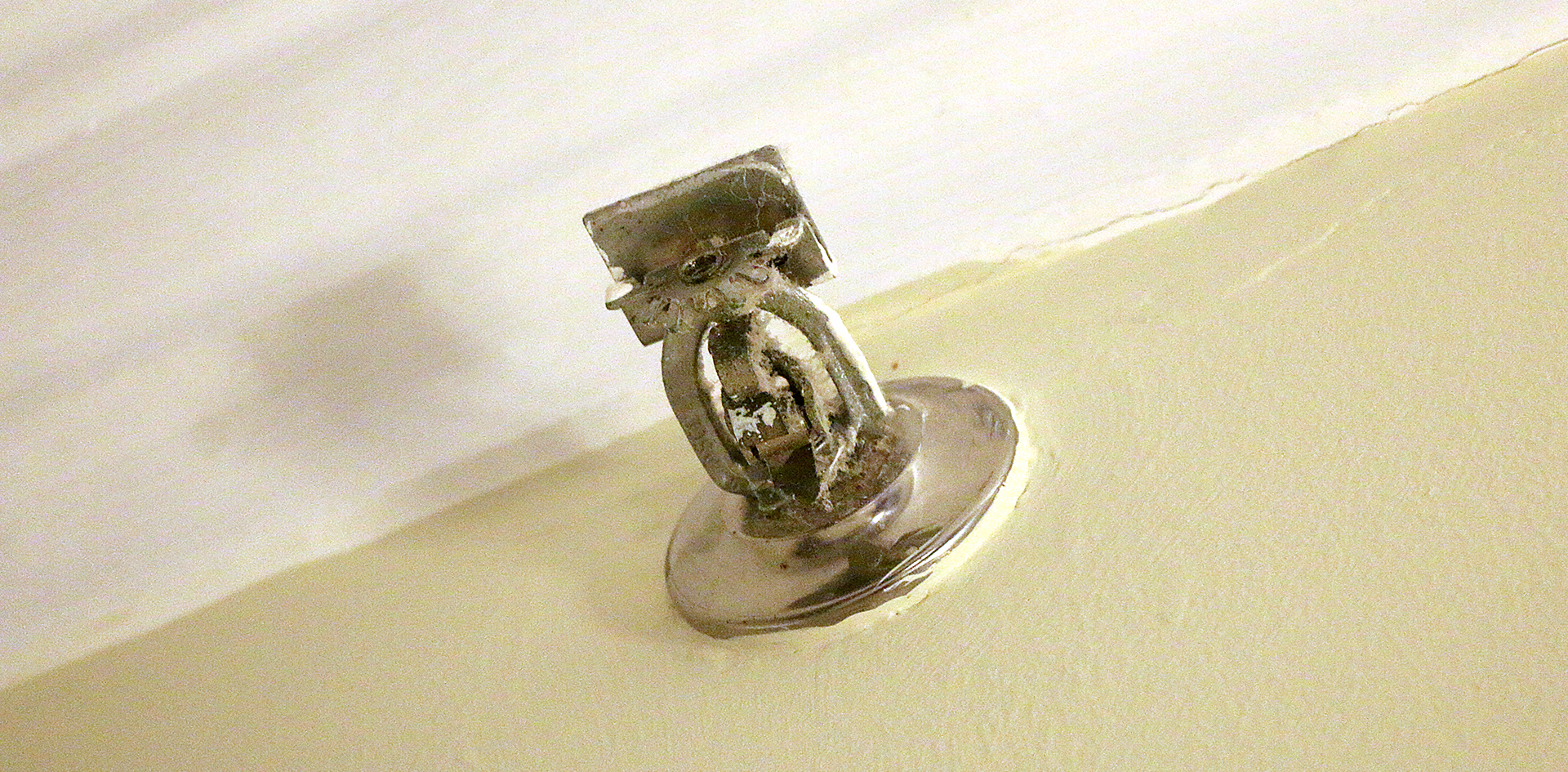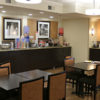Reasons for booking a reservation at a hotel, motel, or resort property include having a comfortable, clean, and dry place to stay when away from home — and that includes getting a good restful night of sleep to feel recharged and refreshed for the next day — and other factors involved in the choice of where to stay for a night may include amenities, benefits, location, and the cost of the room rate…
Protecting Yourself In Case of Fire at a Hotel, Motel, or Resort Property
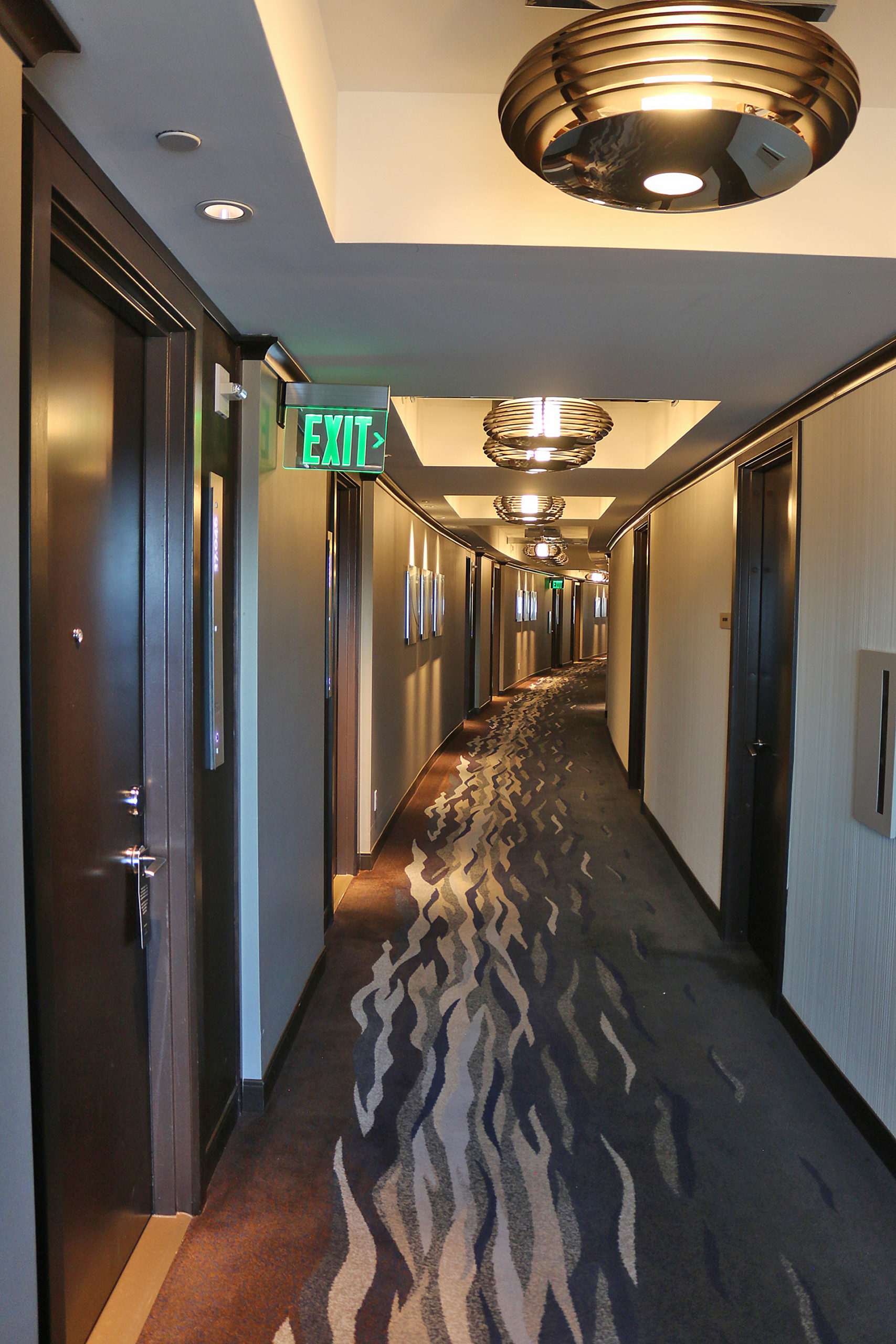
…but when booking a reservation at a hotel, motel, or resort property, have you ever considered being prepared in the event of a fire threatening the building or its occupants?
Thankfully, guests usually do not have to think about fires at hotel, motel, and resort properties, as they rarely happen — but they do happen. Fire departments in the United States responded to an estimated average of 3,520 structure fires in hotel, motel, and resort properties each year — which represents approximately one percent of all structure fires — according to this report from the National Fire Protection Association in 2015. Those fires resulted in annual losses of nine deaths and 120 injuries of civilians — as well as $84 million in direct property damage. Cooking equipment was the leading cause of those fires, which accounts for roughly 50 percent of the fires in hotel, motel, and resort properties — followed by heating equipment at nine percent, clothes dryers at eight percent, smoking materials at eight percent, and electrical equipment at five percent.
Interestingly, eight percent of the fires at hotel, motel, and resort properties were intentionally set.
The leading area of origin for structure fires in hotel, motel, and resort properties is the kitchen, which is the location where two of every five fires — or 41 percent — started. These fires accounted for eight percent of civilian deaths, 25 percent of civilian injuries, and eight percent of direct property damage.
Moreover, the bi-products of fire will more likely kill you than the fire itself. Super-heated gases, smoke, and panic will almost always be the cause of death long before the fire arrives — if it ever arrives, as fire is not likely to chase you down and burn you to death. You must know how to avoid smoke and panic to survive a fire at a hotel, motel, or resort property.
Regardless of the statistics, the probability of a fire at a hotel, motel, or resort property affecting you is unlikely but not completely impossible — so this article is dedicated to equipping you with knowledge and information so that your chance of surviving a fire increases.
IMPORTANT: Guidelines to Remember in All Fire Situations
If a fire is present at the hotel, motel, or resort property at which you are staying, you can find yourself in one or more of several different scenarios. These important guidelines apply to the other sections in this article.
Regardless of the specific situation, please remember these important guidelines if you find yourself in a fire emergency:
- First and foremost, DO NOT PANIC. Panic is a sudden, overpowering, uncontrollable fear or anxiety, often causing wildly unthinking behavior or terror that can often affect many people simultaneously. Panic is the product of your imagination running wild; and once it sets in when you realize that you are lost, disoriented, or you otherwise do not know what to do, it is virtually irreversible as it seems to grow. Panic usually causes you do things that could kill you, as people in a state of panic are rarely able to save themselves. If you collect your thoughts and understand what is going on, what to do, where to go, and how to get there, panic will not set in.
- Ensure that your portable electronic device is equipped with a flashlight — and that the battery of that device is charged as much as possible. The flashlight can guide you through a dark and smoky hallway — or it may be used to help signal personnel as to your location so that they may rescue you.
- If the fire alarm sounds, do not assume that the alarm is false. Always assume that a real fire is threatening your safety. In addition to the fire alarm, someone banging on the door, the smell of smoke, shouting in the hallway, a telephone call from official personnel, sirens, or some other disturbance are also indications that the danger may be real and not a drill.
- If you believe that the fire alarm is indeed false, investigate it thoroughly using the procedures in this article before you go back to sleep.
- Contact the local fire department and inform them of your exact location and room number. Do not be embarrassed to do so, as being safe is better than being sorry. Believe it or not, the local fire department is not alerted by members of the staff at some hotel, motel, and resort properties until they verify whether or not there really is a fire — and they might even attempt to put out the fire themselves. Should you call the reception desk to report a fire, they may send the bellhop, security guard, or anyone else who is not busy to investigate. Members of the staff at hotel, motel, and resort properties are usually very reluctant to “disturb” their guests — plus, fire engines in the streets can be quite embarrassing and tend to draw curious crowds of people.
- Test any doors before you open them with the back of your hand and not your palm, for if the door is unusually warm or hot, the back of your hand can withstand the heat better than your palm; and your hand is still useful even if it is burned. If the door feels:
- Warm around the cracks of the door, DO NOT open it, as fire may likely be on the other side of the door. Use the next best way out — or stay in your room and begin the procedures for If You Are Trapped…, which are outlined later in this article.
- Cool, then cautiously proceed to open it slowly and check to make sure your escape path is clear of fire and smoke — but be prepared to close the door quickly if smoke rushes in.
- If the fire begins:
- In your room, do not panic — stay calm, sound the fire alarm or contact the local fire department, and alert fellow guests in rooms on the same floor as you of the emergency. Flip on the bathroom vent. If there is a fire outside the window, pull down the curtains and move everything combustible away from the window. Bail water all around the window. Keep fighting to survive until reinforcements arrive, which should not take long to happen.
- Outside of your room and you are the one who detects smoke or fire, contact both the local fire department and hotel operator immediately.
- If the hallway is clear of smoke or fire, quickly grab your room key and portable electronic device equipped with a flashlight and take them with you when evacuating your room immediately so that you can return to your room in case the exits are blocked by fire or smoke while navigating your way in possible darkness.
- As you exit, close the door behind you to prevent the spread of flames into the hallway while simultaneously minimizing smoke damage to your belongings. Some doors are excellent fire stops, as they are purposely manufactured to take hours before a fire can burn through them. If you find smoke in the exit stairwell, the reason may likely be that people are leaving the doors open as they enter. If you closed your room door when you left, your belongings may likely still be in good shape.
- Do not pack your belongings and take them with you, as that will not only consume precious seconds that could mean the difference of life or death for you upon your evacuation; but it can also potentially impede the evacuation of fellow guests and compromise their safety.
- Walk — do not run — to safety via the nearest designated fire exit as mapped out in the Hotel Evacuation Plan.
- As you head towards the exit, stay against the wall on the side where the exit is located, as getting lost or disorientated in a smoky atmosphere is very easy to do. If you are on the wrong side of the hallway, you might crawl right on by the nearest exit. If you are in the middle of the hallway, people who are running in panic will trip over you. Stay on the same side as the exit and count doors as you proceed. Could you get to the exit wearing a blindfold which completely covers your eyes?
- Always use the stairs during a fire and never attempt to use an elevator, for an elevator can lose power and become disabled at any time — resulting in you potentially becoming trapped inside of it. Elevators are not safe exits; as elevators cannot be considered an exit by law in all states in the United States because they are manufactured as a complex system and are comprised of many parts. Even if the elevator is operating normally, it may potentially take you to the floor where the fire is located.
- When using the stairs, walk to the bottom floor of the hotel, motel, or resort property and hold onto the handrail while staying as close to the wall as possible as you descend, which will help reduce the chance of you being knocked down by other people who are running in panic — and you might not be able to get back up. Leave the building, cross the street, and watch the action. When the fire is out and the smoke clears, you will be allowed to re-enter the building.
- If you encounter smoke along the way during your evacuation — or if you have no other choice than to escape through smoke — crawl low under the smoke on your hands and knees to your exit, as smoke rises above air. DO NOT stand up or walk in smoke, as you may be overcome by the rising toxic gases — and you will want to save your eyes and lungs for as long as possible. Rather, if you detect any smoke in your room, quickly drop to the ground — where the air is relatively fresher — and crawl toward the door.
- If you encounter smoke or fire on lower levels and cannot proceed any further with exiting the building, return to your room. Contact the hotel operator and explain that you are trapped in your room.
- If you cannot safely get back to your room, walk to a floor with clearer air, and attempt to find another emergency exit.
- If necessary, take the stairs to the roof as a last resort — but keep in mind:
- People who are panicking will run over anything in their way — including a firefighter. Keep going “upstream” while hanging on to the handrail and continue to head up towards the roof.
- If for some reason you try to open one of the doors to an upper floor and find it is locked, do not be concerned, as that is normal. Exit stairwells are designed so that you cannot enter from the street or roof. Once inside, however, you may exit at the street or roof levels; but for security reasons and purposes, you cannot go from floor to floor.
- When you reach the roof, prop the door open with something, as that is the only time you will leave a door open. Any smoke in the stairwell may now vent itself to the atmosphere; and you will not be locked out of the building.
- Find the windward side of the building using the wet finger method, have a seat, and wait until they find you, as the roofs of buildings have proven to be a safe secondary exit and refuge area.
- Stay put, as firefighters will always conduct a thorough search of the building — including the roof.
- Once you are safe from danger, use your mobile telephone to inform personnel at the front desk — or contact the hotel operator of the emergency.
Begin Preparation Prior to Leaving On Your Trip
Pay close attention to fire safety — as well as location and amenities — during the planning of a trip, as becoming familiar with your surroundings is critically important to saving yourself in the event of a fire. This includes when you are aboard an airplane, which will eventually be highlighted in a separate article.
- Consider packing a portable smoke detector for increased safety.
- Request rooms closer to the ground level when booking your reservations, as egress is easier with fewer floors to navigate prior to evacuating — and if the hotel, motel, or resort property is an older one with its standards grandfathered prior to the safety code of its local jurisdiction becoming more restricted, contact a member of the staff and ask if the building is equipped with smoke alarms and an automatic sprinkler system with sprinklers in each room.
- If any of the occupants has a disability — such as blindness, deafness, or mobility impairment — ensure they can be accommodated as well in the event of a fire.
Preparation After Checking In to the Hotel, Motel, or Resort Property
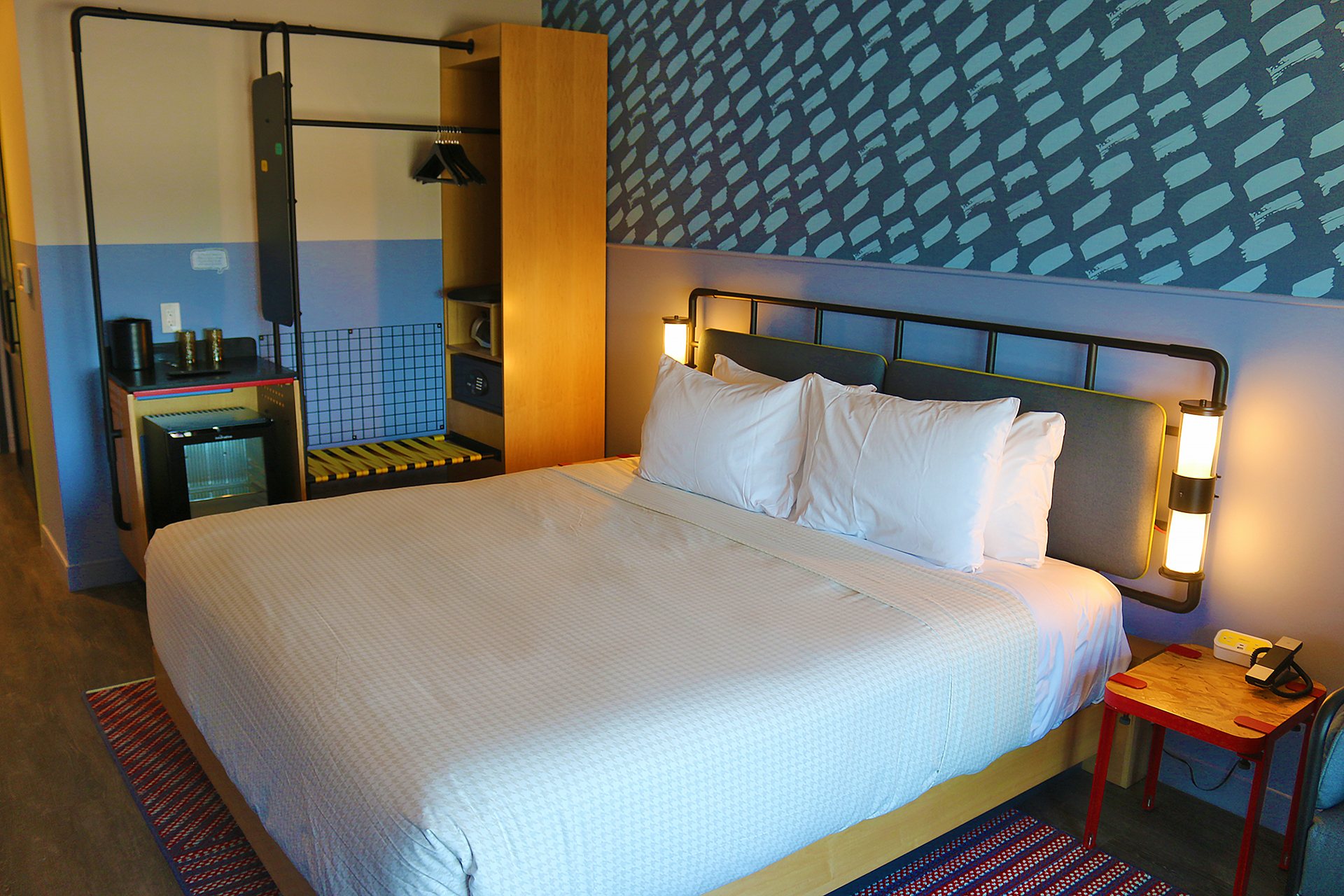
After you check into the hotel, motel, or resort property, ensure that both you and your roommates spend a few moments of time to do each of the following for best results:
- Review the Hotel Evacuation Plan — which is usually located on the back of the door of your room — and note the location of all fire exits on your floor; but especially the nearest exits.
- Locate the fire alarms and fire extinguishers which are nearest to your room.
- If applicable, practice unlocking and opening the windows in your room — and look outside to see if you could escape without injury.
- Learn both the layout of your room and how to unlock your door in darkness. This will help prepare you for quick evacuation at night or during a electrical power outage.
- Always place your room keys on a night stand next to the bed where you can easily reach over and find them quickly — do this every time you stay in a hotel, motel, or resort property and it not only becomes a habit; but you will be able to locate them almost instantly — and remove one of the key cards from its pouch so that you do not struggle to remove them in the event of an emergency. Take your room key with you when you evacuate in case emergency exits are blocked by fire and you must return to your room.
- Locate the two nearest stairs and count the number of doors between your room and the stairwell. In a fire, the hall may be dark and it may be difficult to see the exit stairway. Counting the number of doors may help you find the stairs, as you will likely not have the opportunity to do so during an actual emergency.
- Check to make sure the exits are not locked or blocked — such as with a laundry cart or trash receptacle — and if any of the exits are not accessible, promptly notify the manager of the hotel, motel, or resort property.
When Smoke is Present
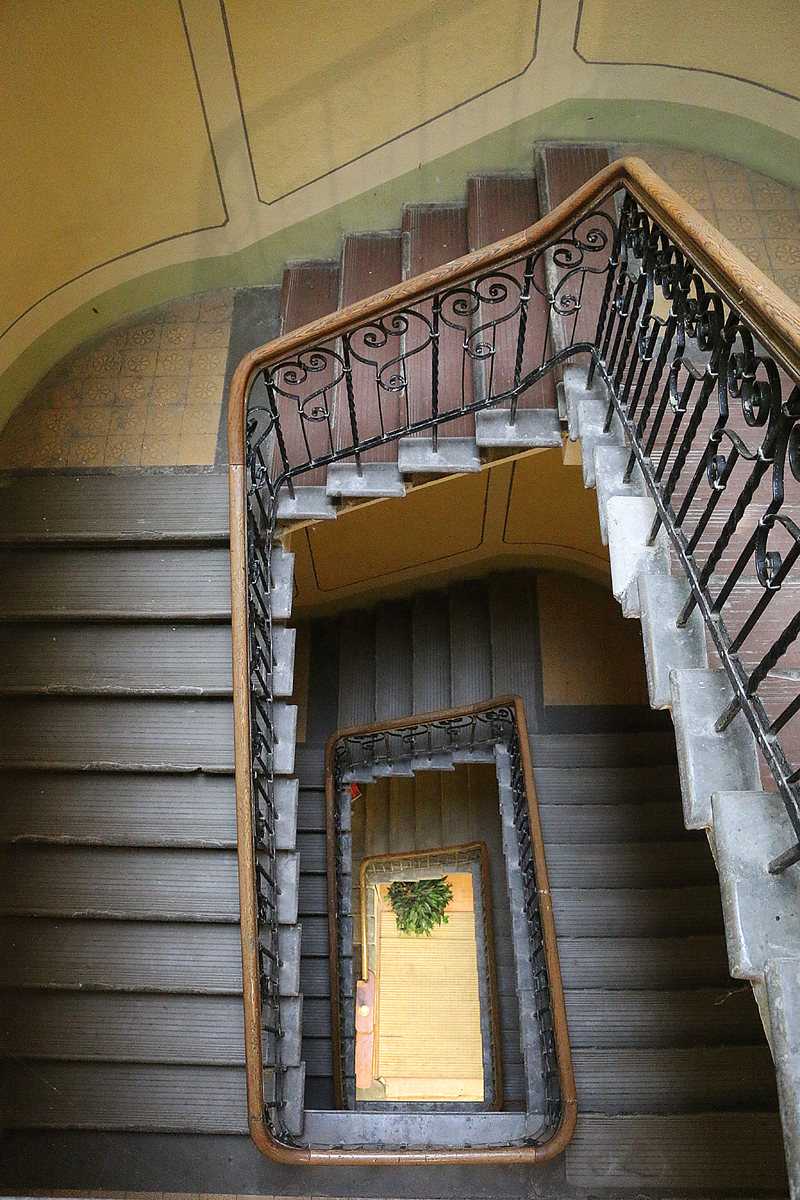
Approximately 75 percent of fires at hotel, motel, and resort properties are caused by cigarettes, matches, and other smoking materials, according to the aforementioned report by the National Fire Protection Association.
Your prime objective should be to leave at the first sign of smoke. If your room door is hot and smoke is in the hallway, stay calm and keep the door closed. You can survive a hotel fire by awaiting rescue in your room.
The presence of smoke does not necessarily mean that a fire exists. As an example, a smoldering mattress will produce excessive amounts of smoke. Air conditioning and air exchange systems will sometimes pick up smoke from one room and carry it out to other rooms or floors.
Because smoke is warmer than air, it will start accumulating at the ceiling and work its way down. The first thing you will notice is that the exit signs which are attached to the ceiling seem to have disappeared because they are obscured by the smoke — so searching for exit signs at that point is too late.
Keep in mind that smoke is very irritating to the eyes, as your eyes will only take so much irritation before they involuntarily close — and you will not be able to reopen them in smoke. Get down on your hands and knees — or stomach — to breathe the fresher air at or near the floor and remain at that level as you venture towards the exit. You decrease your chances of survival otherwise.
When smoke is present at a hotel, motel, or resort property:
- Contact the hotel operator with your mobile telephone or the telephone in the room. Explain that you are trapped in your room and in need of rescue.
- Meanwhile, fill the bathtub in the bathroom with water and wet your towels and sheets. You may also use water to cool the walls by using a wastebasket or ice bucket to help bail water. Keep everything wet — even if you create a mess by doing so. Whatever you do, do not actually get into the bathtub full of water — because if the fire is hot enough, it could literally boil you.
- Put wet towels or sheets at the bottom of the door to seal the doorway from smoke. If you have wide duct tape, seal the entire door jamb. To prevent smoke from entering the room, stuff any vents with wet towels or sheets, or tape a magazine over each vent.
- A wet towel tied around your nose and mouth is an effective filter if your fold it in a triangle and put the corner in your mouth.
- Swinging a wet towel around the room may help to clear some of the smoke.
- Hang a sheet outside the window of your room to ensure that your location is as visible to firefighters and other emergency personnel as possible. DO NOT use the sheet to climb down from your room.
- Despite your best efforts, smoke may still enter the room. Use a blanket or sheet to construct a makeshift tent over your head, put your covered head out the window of your room, and breathe the clean air. If your window does not open, you may have no choice but to break it with a chair or drawer — but break the window only as a last resort, as the shards can seriously injure you and cause you to bleed profusely.
- If smoke can enter your room from outside, close the window immediately and keep it closed — but ensure that smoke is outside before taking the last resort step of breaking a window.
- Smoke will sometimes get into the exit stairway. If the building is tall, this smoke may not rise very high before it cools and becomes heavy. This phenomenon is called stacking. For example, if your room is on the 20th floor, you could enter the stairway and find it clear — but as you descend, you could encounter smoke that has “stacked”. Do not try to run through it, as people die that way. Instead, turn around and walk up the staircase.
If You Are Trapped…
If you cannot escape and there is no fire in your room, stay put.
- Contact the local fire department and inform them of your exact location.
- Keep the door to your room closed. You can put your mattress up against the door and block it in place with the dresser.
- Shut off fans and air conditioner units because they can draw smoke into the room.
- Stuff towels or sheets in the cracks around all doors and vents between you and the fire.
- If you can, open the window of your room at the top and bottom — but be prepared to shut the window if smoke comes into the room. Do not break the window, as you may need to shut it later.
- Stay at the window and signal the firefighters by waving a light-colored cloth or a flashlight.
Guidelines For Meeting Planners

If you are a convention or meeting planner, you should pay particular attention to fire safety.
- Before scheduling an event, investigate the arrangements of the hotel, motel, or resort property for fire detection, its alarm systems, the provisions for extinguishing fires, the exit routes, and employee training for fire emergencies.
- The hotel, motel, or resort property should ideally be equipped with both an alarm system and an automatic sprinkler system — particularly for large exhibition areas and other wide areas. If you are planning a large trade show, be sure the facility provides services to remove packing materials quickly from the exhibit area.
- A general rule to keep in mind is that street-level meeting rooms are the easiest to evacuate, as meeting rooms:
- Above the seventh floor are more hazardous because fire ladders may not reach that high.
- In the basement may not be a wise choice because meeting participants must climb up stairs in the same direction in which smoke and flames will travel.
- The meeting room should have adequate exits which should be brightly lit, not blocked by furniture or curtains, and be easily opened. They should never be locked or chained. A rule of thumb is that:
- 50 to 300 persons require two exits.
- 301 to 1,000 persons require three exits.
- Greater than 1,000 persons require a minimum of four exits.
- Seating or exhibit arrangements should allow enough aisle space for quick evacuation.
- Familiarize yourself with all exits and escape routes by not only ensuring that the floor plan is visibly posted; but also by walking the entire escape route. Hallways, exits, and stairwells should be clear of obstructions. Stairs should have emergency lighting and elevators should be clearly marked to prevent use in a fire.
- After you thoroughly check the escape route, ask members of the staff of the hotel, motel, or resort property to:
- Remove any furniture that is in the way.
- Point out the location of automatic sprinklers and smoke detectors.
- Locate fire extinguishers in case of small “wastepaper basket” fires — but be sure to contact the fire department directly before attempting to control even a small fire.
- Arrange to listen to the fire alarm and find out who on the staff of the hotel, motel, or resort property is responsible for calling the fire department — although in case of fire, contact the fire department first and then alert the hotel switchboard on the house telephone.
- Before your meeting, instruct and educated attendees pertaining to alarms, escape routes, and general fire safety procedures.
Should You Jump To The Ground?
Many people jump to the ground primarily because panic sets in — and most of those people are either killed or injured in the process.
If you are already on the ground floor when an emergency occurs, you could open a window and climb out to safety — or find the nearest door to the outside.
Jumping from the second floor could result in survival with a sprained ankle — but you must jump out far enough to clear the building. Many people hit window sills and ledges on the way down, and they spin into cartwheels. If they do not land on their heads and kill themselves, they are seriously injured.
The chances are you will not survive the fall if you jump from a window which is higher than the third floor of the building. You would probably be better off staying put and fighting the fire. Nearby buildings may seem closer than they really are; and many people have died trying to jump to an adjacent building which seemed closer but was actually too far.
If you absolutely must jump as a last resort:
- Try to relax your body as much as possible before attempting the jump, as a stiff body increases the chance of broken bones.
- Ensure that you land on your feet in as soft a place as possible while simultaneously buckling your legs upon impact with the ground — by buckling your legs and rolling over on the ground, you reduce the chance of breaking bones or enduring some other sort of serious injury — keeping in mind that your chance of surviving the fall is greater if you land in shrubbery, dirt, grass, or mud rather than concrete, asphalt, or brick surfaces on the ground.
- Use the momentum from falling to instantly roll over on the ground after impact.
This technique is similar to what skydivers do when landing with a parachute. If you have experienced skydiving or other sport in which jumping from heights is part of the sport, you have a better chance of surviving a jump from a building with fewer injuries.
Final Boarding Call
The best protection in a fire emergency is an alert individual who knows what to do in a fire at a hotel, motel, or resort property — regardless of what safety measures are provided.
Fortunately, newer hotel, motel, and resort properties means that the buildings are generally safer because they are constructed with materials and techniques which are designed to reduce the risk of fire — but they are not completely failsafe or foolproof; so being prepared in the unlikely event of a fire is a good idea which could possibly save your life one day.
Multiple sources were either used or consulted in the writing of this article. If you believe that any information in this article is erroneous or that important information should be added, please post that information in the Comments section below.
All photographs ©2017, ©2021 and ©2022 by Brian Cohen.
